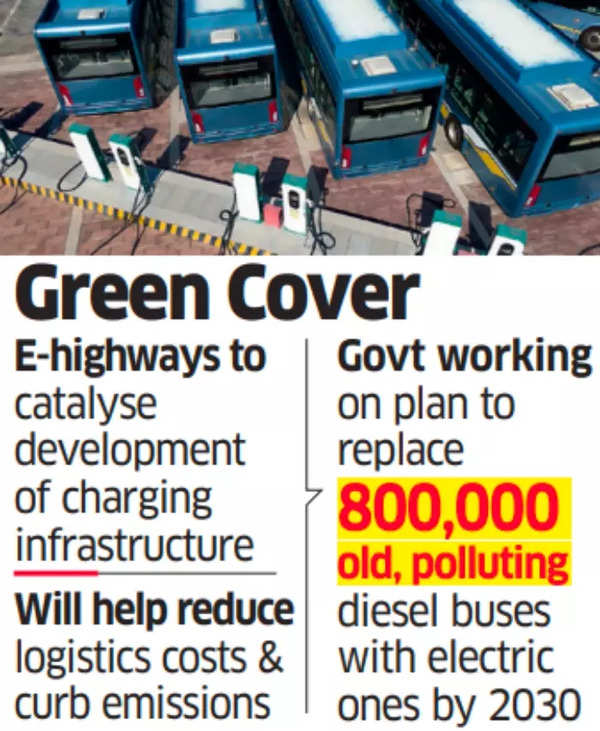The government aims to develop 6,000 km of these highways over the next seven years to promote the adoption of electric mobility and facilitate the deployment of electric buses across the country.These highways will be equipped with charging infrastructure powered by green energy sources.
According to an ET report, the initiative, known as Vision 2030: PM Public Transport Sewa, is expected to coincide with the introduction of electric buses, thereby creating an ecosystem for electric vehicles (EVs) in India. “The development of electric highways is likely to happen simultaneously with induction of electric buses accelerating the establishment of an ecosystem for EVs in India,” said a government official.Discussions have already been initiated with stakeholders to replace 800,000 old and polluting diesel buses with electric buses by 2030. This comprises 200,000 electric buses designated for state transport undertakings, 550,000 intended for private operators, and an additional 50,000 allocated for school and employee transportation.
The construction of new e-highways is anticipated to promote the development of charging infrastructure, encouraging more individuals to purchase electric cars for their daily commute. However, sales of electric cars fell short of the targeted 100,000 units last year, with only 83,000 units sold. This can be attributed to consumers’ concerns regarding the limited range and inadequate charging infrastructure for EVs in the country. As a result, electric vehicles are primarily being considered as a secondary or tertiary mode of personal transport.

Green cover: Electric highways
The Golden Quadrilateral is the longest highway network in India, connecting the four major cities of Delhi, Mumbai, Kolkata, and Chennai, as well as various industrial, agricultural, and cultural hubs. The construction of e-highways on this network is expected to contribute significantly to the government’s efforts to reduce logistics costs and curb emissions in line with COP28 guidelines.
What are electric highways?
Electric highways provide an energy-efficient solution by supplying electricity to moving vehicles through overhead power lines. Presently, Berlin, Germany hosts the world’s lengthiest e-highway, covering 109 kilometers and operational for public use.
The Ministry of Road Transport and Highways plans to award contracts for electrified highways to private companies under a build, operate, and transfer (BOT) model. Efforts are also underway to identify and convert existing highways into e-highways by establishing sufficient charging stations for electric buses to operate between cities, thereby promoting cost-effective green intercity public transportation. The funding for this initiative will be provided by the central and state governments.
In September of last year, Nitin Gadkari, the Minister for Road Transport and Highways, had expressed the government’s interest in developing electric highways due to their economic viability. The power ministry may offer electricity at subsidized rates, while private investors could construct electric lines along designated routes, he had said. The National Highways Authority of India (NHAI) could implement an electric tariff system similar to the tolls currently payable on highways.
